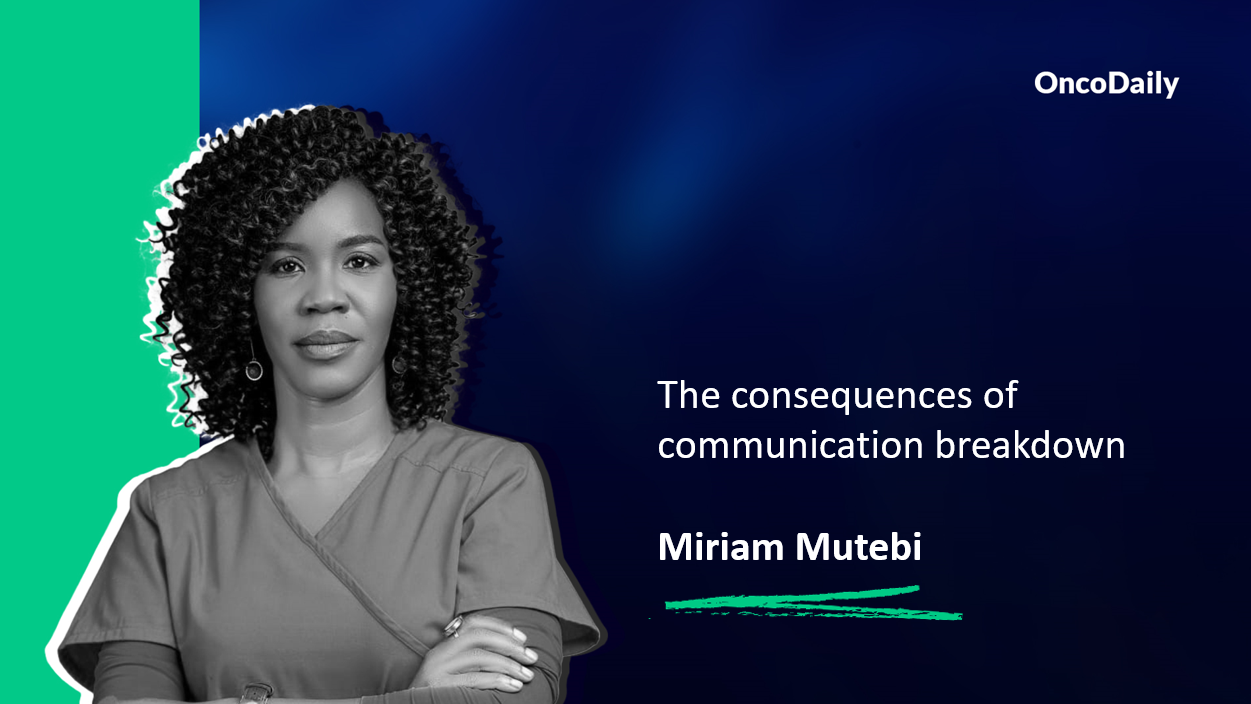Miriam Mutebi shared on LinkedIn:
“‘When will I get pregnant?’ asked a patient 10 months after a hysterectomy for cervical cancer.
She and her partner were seeking a second opinion from my gynae oncology colleague at the hospital. Imagine their devastation upon learning the irreversible consequences of her treatment.
This is what it looks like when there is a critical breakdown in communicating key information. Informed consent and health literacy are vital for patient empowerment, safety, and trust, ensuring patients are not only treated but actively involved in their care journey.
While this case is extreme and unfortunate, it is also rare. It however serves as a sobering reminder of the consequences of communication breakdown and why our duty as healthcare professionals must be to uphold the dignity and autonomy of our patients. We must ensure our patients fully understand all treatments and procedures they undergo.
Informed consent is not just about obtaining a signature; it involves explaining risks, benefits, and outcomes, allowing patients to make decisions aligned with their values. We must avoid a paternalistic approach where information is withheld due to assumptions about patients’ ability to understand or afford treatment.
Health literacy is thus, crucial for patient empowerment. It enables them to understand complex medical details, ask relevant questions, and engage with healthcare providers. It refers to a patient’s ability to comprehend and act on health information. It means clear and accessible communication that transforms medical jargon into actionable knowledge, allowing for informed decision-making.
Additional caution and care are needed when dealing with vulnerable populations to ensure one’s own implicit biases do not come to the fore. We need to meet patients at their level. If a patient can’t read, sometimes flipcharts and graphics can better explain the journey of what is expected.
AORTIC- Africa is dedicated to educating communities through research advocacy, empowering cancer advocates to demystify patient participation, and promoting community-based approaches. Effective communication is the bridge between informed consent and health literacy. Healthcare providers must use plain language, visual aids, and interactive tools to ensure information is understandable and relevant.
For example, the American Cancer Society (ACS) has created tools to map out the chemotherapy process for vulnerable populations. These are now being used in many parts of Africa. We should strive to increase their reach and other locally generated materials in our daily practice.
In conclusion, creating a dialogue where patients feel comfortable asking questions leads to trust, better patient adherence to treatments, and overall improved health outcomes. Informed consent and health literacy are shared responsibilities, requiring clear communication and active engagement from both healthcare providers and patients.”
Source: Miriam Mutebi/LinkedIn
For more posts by Miriam Mutebi, visit oncodaily.com
Miriam Mutebi is a Breast Surgical Oncologist and Assistant Professor in the Department of Surgery at the Aga Khan University Hospital in Nairobi, Kenya. She is also the Vice-President of East Africa of the African Organization for Research and Training in Cancer (AORTIC), treasurer for the Kenya Society of Hematology and Oncology (KESHO) and on the Board of Directors of the Union for International Cancer Control (UICC).
She is the co-founder of the Pan African Women’s Association of Surgeons and is part of the Kenya Association of Women Surgeons. She is an avid supporter for the education and support for women, especially in surgery and she aims to provide mentorship for women in surgery and to improve women’s health and surgical care in Africa. She is currently pursuing a pilot’s license in order to extend breast care services to marginalized areas.




